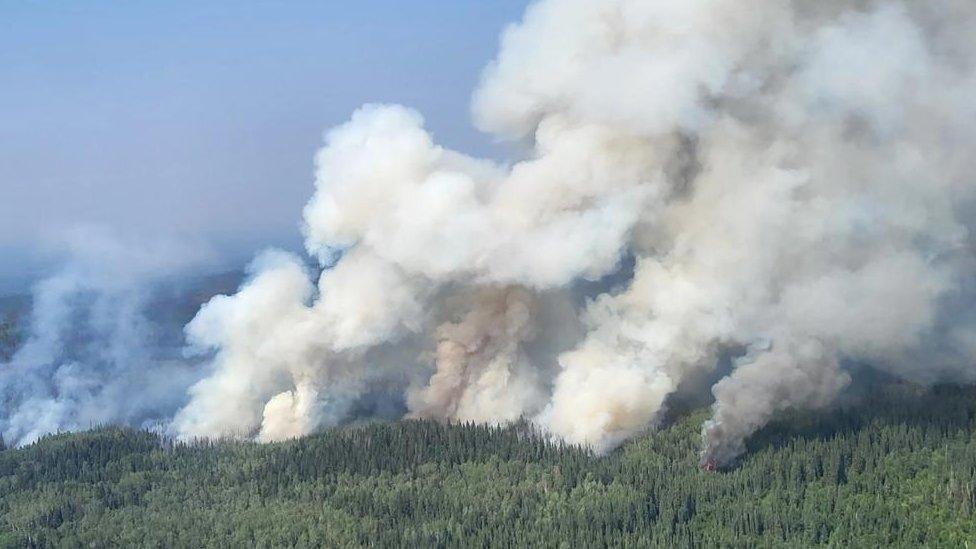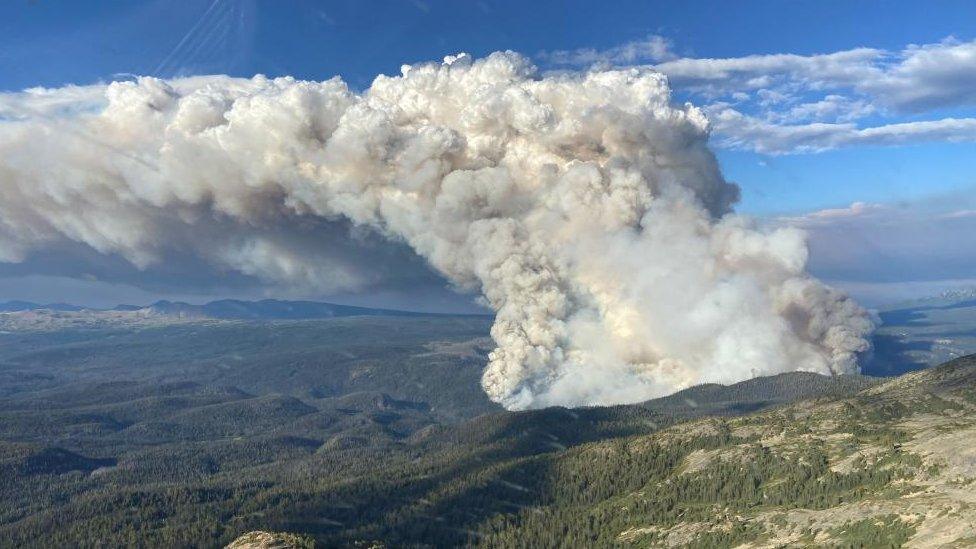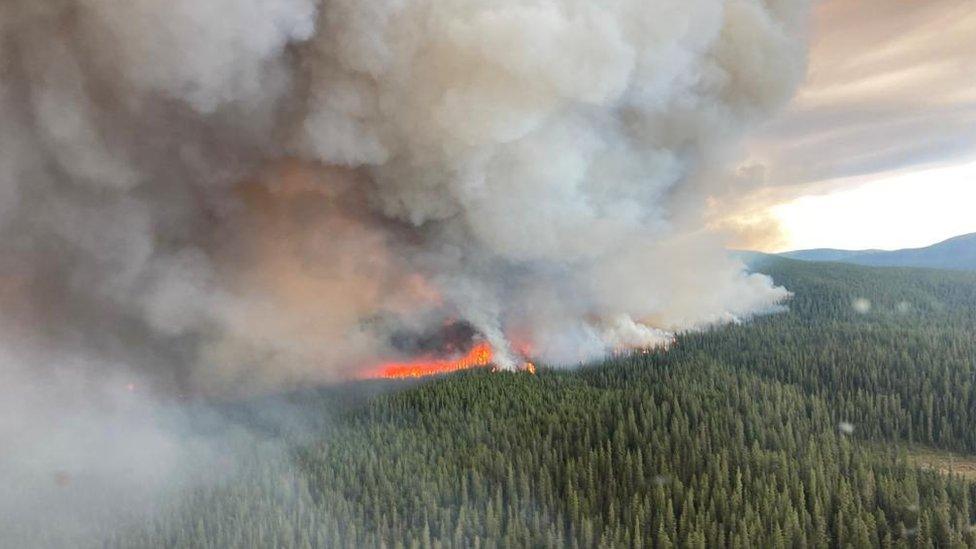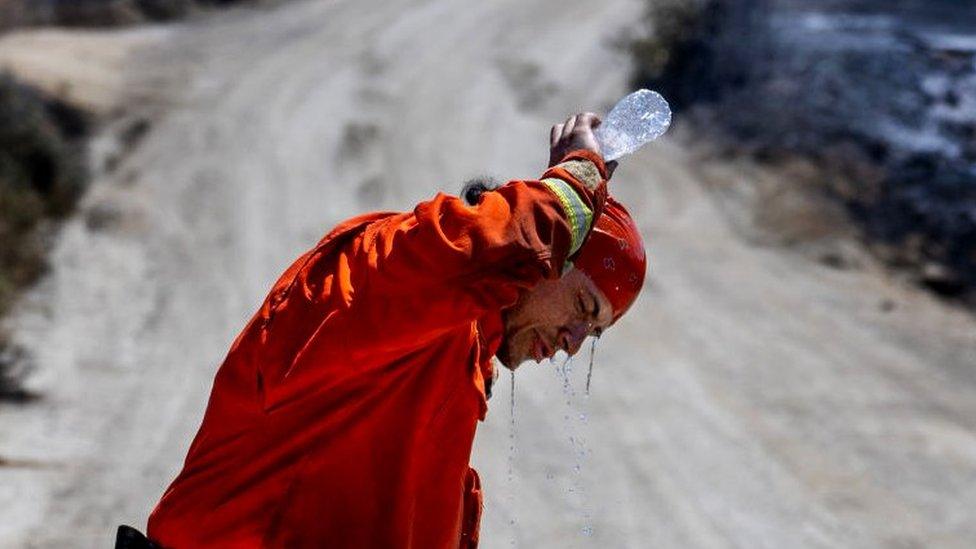Crash kills pilot of helicopter fighting Canada wildfires
- Published

The helicopter was being used to deliver water to wildfires in Alberta
The pilot of a helicopter that crashed in Canada's Alberta province during wildfire fighting operations has died, authorities said.
Investigators are heading to the site of the crash, which took place south-east of the town of Manning in the Peace River area.
The crash comes days after two wildfire fighters were killed combating blazes.
Nearly 900 fires are burning across Canada, including 553 that are considered "out of control".
The helicopter pilot, a 41-year-old man from Whitecourt, Alberta, was helping with "bucketing" operations, in which specialised buckets suspended by cables are used to douse fires, officials said.
"I'm heartbroken to hear that another Canadian fighting wildfires has lost their life," Prime Minister Justin Trudeau said on Twitter. "We'll never forget his service to his province and to our country."
Authorities first received transmissions from an emergency beacon at the crash site at 18:15 local time (00:15 GMT), according to a spokesman for the Transportation Safety Board of Canada (TSB) quoted by CBC.
"It collided with the ground during firefighting operations," said the TSB's Chris Krepski.
"I don't know what phase it would have been, whether it would have been while it was picking up water or it was releasing water," he added. "That is typically what we would try to find out."
Officers arrived at the crash site - which is inaccessible by road - two hours later. The pilot was declared dead after being evacuated to Peace River airport.
Watch: Airline passenger captures Canadian wildfire smoke
It comes just days after two wildfire fighters were killed battling blazes in separate incidents in the Northwest Territories and British Columbia.
"We mourn their death but celebrate what they were doing, and their dedication to their communities and their countries," environment minister Steven Guilbeault said on Thursday, before news of the helicopter crash emerged.
Canada has surpassed its record for the largest area burnt by wildfires in a single year.
So far this year, wildfires have razed over 24 million acres (10 million hectares) - an area roughly the size of Iceland or the US state of Indiana.
"We know that climate change makes wildfire season worse," Mr Guilbeault added. "We're working to make sure that we're keeping people safe this year while getting ready for years to come."
Climate change increases the risk of the hot, dry weather that is likely to fuel wildfires. The world has already warmed by about 1.1C since the industrial era began and temperatures will keep rising unless governments around the world make steep cuts to emissions.
Smoke from the fires this year has prompted air quality advisories across swathes of the US, with tens of millions of Americans subject to warnings.
- Published18 July 2023

- Published17 July 2023

- Published17 July 2023
